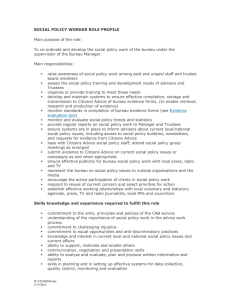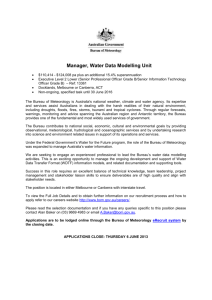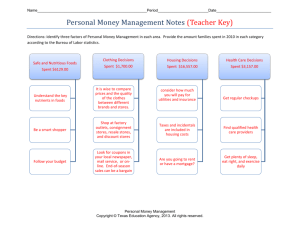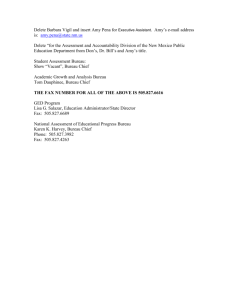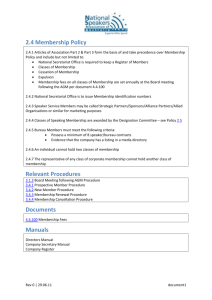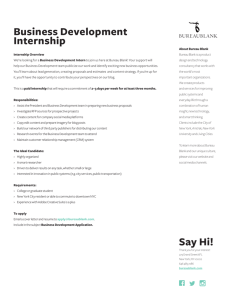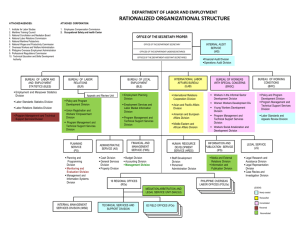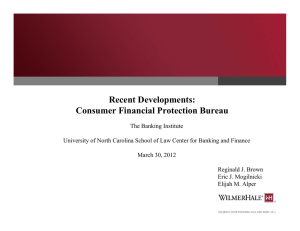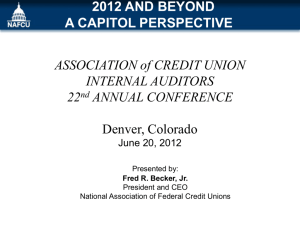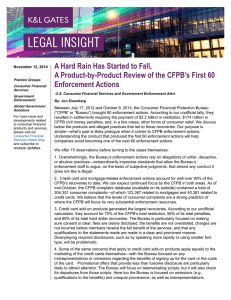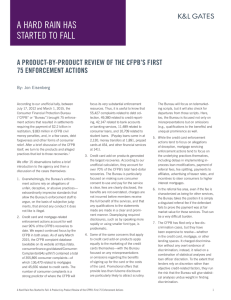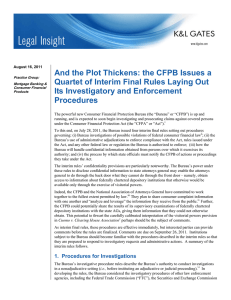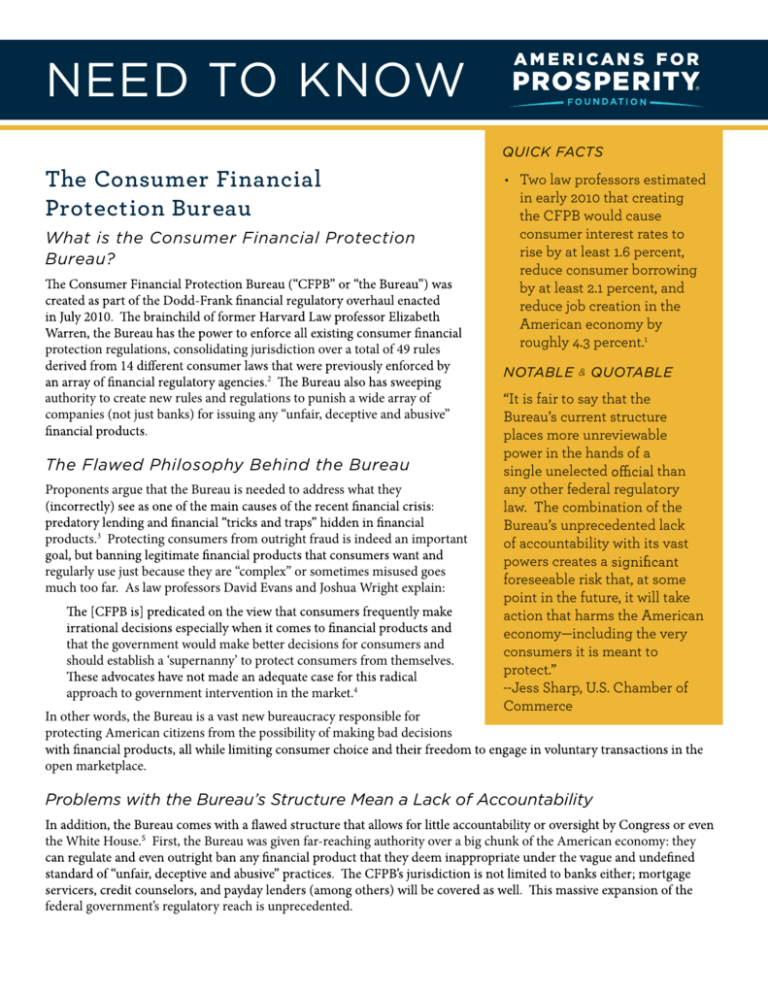
NEED TO KNOW
QUICK FACTS
The Consumer Financial
Protection Bureau
What is the Consumer Financial Protection
Bureau?
protection regulations, consolidating jurisdiction over a total of 49 rules
2
authority to create new rules and regulations to punish a wide array of
companies (not just banks) for issuing any “unfair, deceptive and abusive”
The Flawed Philosophy Behind the Bureau
Proponents argue that the Bureau is needed to address what they
products.3 Protecting consumers from outright fraud is indeed an important
regularly use just because they are “complex” or sometimes misused goes
much too far. As law professors David Evans and Joshua Wright explain:
that the government would make better decisions for consumers and
should establish a ‘supernanny’ to protect consumers from themselves.
approach to government intervention in the market.4
In other words, the Bureau is a vast new bureaucracy responsible for
protecting American citizens from the possibility of making bad decisions
• Two law professors estimated
in early 2010 that creating
the CFPB would cause
consumer interest rates to
rise by at least 1.6 percent,
reduce consumer borrowing
by at least 2.1 percent, and
reduce job creation in the
American economy by
roughly 4.3 percent.1
NOTABLE
&
QUOTABLE
“It is fair to say that the
Bureau’s current structure
places more unreviewable
power in the hands of a
than
single unelected
any other federal regulatory
law. The combination of the
Bureau’s unprecedented lack
of accountability with its vast
powers creates a
foreseeable risk that, at some
point in the future, it will take
action that harms the American
economy—including the very
consumers it is meant to
protect.”
--Jess Sharp, U.S. Chamber of
Commerce
open marketplace.
Problems with the Bureau’s Structure Mean a Lack of Accountability
the White House.5 First, the Bureau was given far-reaching authority over a big chunk of the American economy: they
federal government’s regulatory reach is unprecedented.
seven votes (with one vote coming from the CFPB Director herself), and only if the rule threatens
Finally, because the Bureau is housed in the Federal Reserve, its budget is not subject to the
purse” for a reason: if Congress doesn’t like what agency bureaucrats are doing, they can explicitly
deny them funding. Instead, the CFPB gets an unprecedented exemption from Congress’
traditional check on agency authority.
Imposing Hefty Costs on the Economy
American economy, depressing economic growth and job creation. As standards become stricter,
consumers and businesses will have less access to the credit products they use to make purchases
or expand their operations. For those who can still access credit, the additional legal risks for
pockets and potentially pricing some out of the credit markets all together.
markets given the uncertainty surrounding the CFPB’s enforcement authority – stalling or even
means less choice for consumers and businesses in credit markets.
Conclusion
from lack of clarity, cohesion, and consistent enforcement of regulations that were already on the
books.6
end up hurting the very consumers it is intended to protect.
Endnotes:
1. David S. Evans and Joshua D. Wright,
Credit, LOYOLA CONSUMER LAW REVIEW, Vol. 22, No. 3 (March 2010) (online at http://papers.ssrn.com/sol3/papers.
2. CONSUMER FINANCIAL PROTECTION BUREAU,
, Federal Register,
Vol. 76, No. 140 (July 21, 2011) (online at http://www.gpo.gov/fdsys/pkg/FR-2011-07-21/pdf/2011-18426.pdf).
3. Mark Calabria, Why More Consumer Protection When Too Much Led to Crisis?, THE CATO INSTITUTE (March 3,
2010) (online at http://www.cato.org/pub_display.php?pub_id=11415).
4. Evans and Wright, at 32.
5. Written Testimony of Jess Sharp, executive director, Center for Capital Markets Competitiveness, U.S. Chamber of
Commerce, before the House Subcommittee on Financial Institutions and Consumer Credit (April 6, 2011) (online at
See also Letter from 44 U.S. Senators to President Barrack
Obama (May 2, 2011) (online at http://shelby.senate.gov/public/index.cfm/newsreleases?ID=893bc8b0-2e73-4555-8441d51e0ccd1d17); Mark Calabria, Ditch the Double Standard for New Consumer Agency, THE CATO INSTITUTE (May 15,
2011) (online at http://www.cato.org/pub_display.php?pub_id=13200).
6. Written Testimony of Leslie R. Anderson, President and CEO, Bank of Bennington, on behalf of the American Bankers
Association, before the House Subcommittee on Financial Insitutions and Consumer Credit (April 6, 2011) (online at
Americans for Prosperity Foundation’s “Need to Know” informational series
explores current events and recent scholarship on public policy issues from a
free-market economics perspective. A full list of “Need to Know”
is
available at www.AmericansForProsperityFoundation.com/NeedToKnow.
© 2012 Americans for Prosperity Foundation. All Rights Reserved.
The net result
of these new
regulations
will be a less
vibrant and
less innovative
financial sector
to support
the American
economy,
depressing
economic growth
and job creation.

